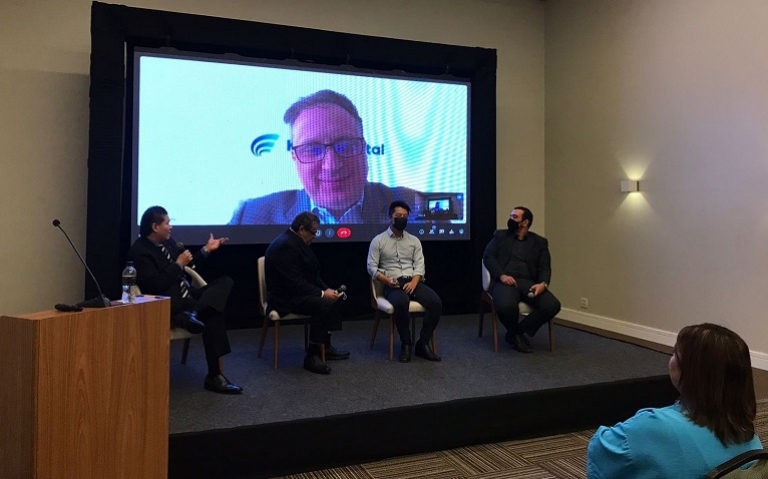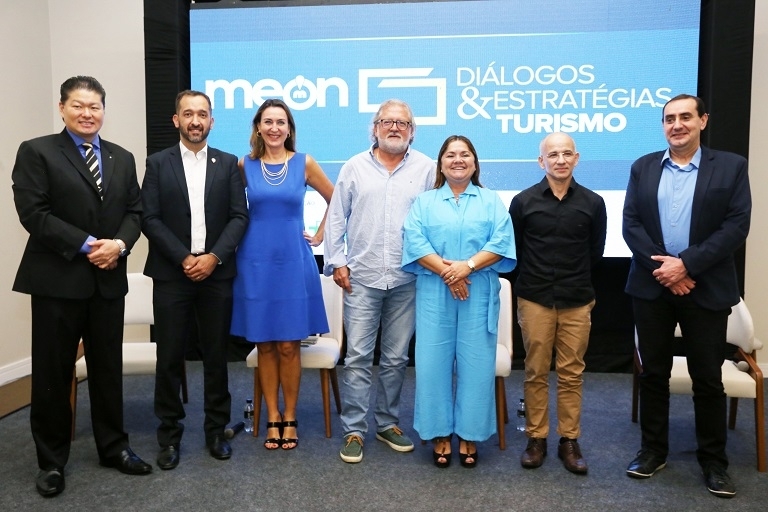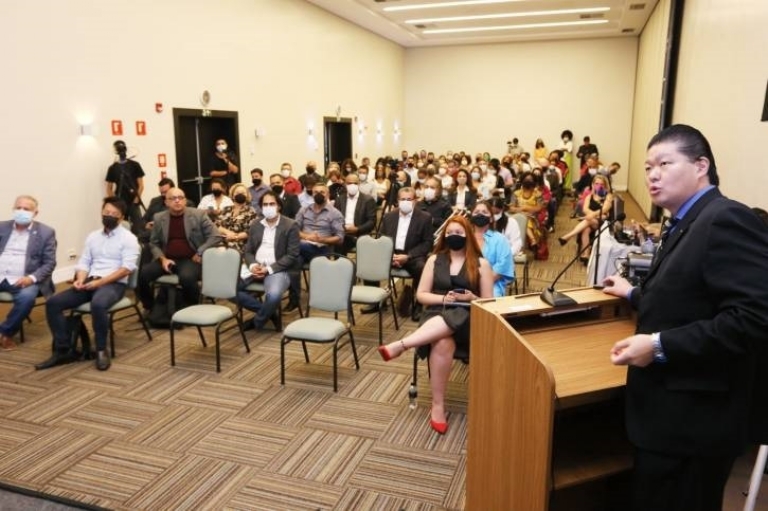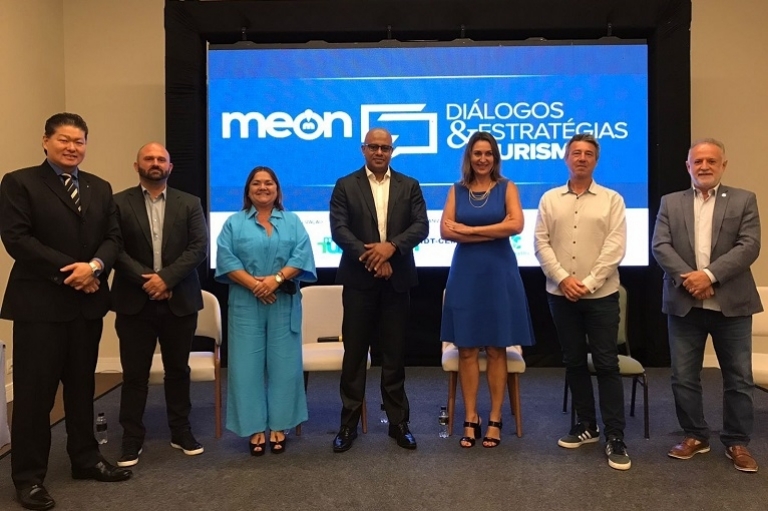

More than 20 representatives from RMVale's 39 cities were present at the meeting, which was broadcast live on the official channel of Portal Meon on YouTube.
At the opening, the executive director of Grupo Meon de Comunicação, Regina Laranjeira Baumann, together with the mayor of Sao José dos Campos, Felicio Ramuth (PSD), welcomed those present and opened the debate.

Held in the event hall of the Golden Tulip hotel, inside Shopping Colinas, in the western region of Sao José dos Campos, the seminar was divided into four themes and the discussion took place from 9 am to 1:30 pm.
Panel 1: Approval of gaming and casinos in Brazil
The first topic discussed at the 2022 ‘Dialogues & Strategies: Tourism’ refered to the bill that provides for the legalization of gaming and casinos in Brazil, which is being processed in Brasília. Bruno Omori, president of IDT-Cema (Development, Tourism, Culture, Sport and Environment Institute) mediated the dialogue, as in the other panels.

“10% of the world's GDP is generated by tourism. In Brazil, in 2018, 3.8% of the national GDP came from tourism. We have a huge field to be explored. The release of casinos, bingos, games, however feasible, will add many investments to the country,” highlighted Paulo Kenzo Uemura, director of Parque Magic City and director of Adibra (Association of Amusement Park Companies in Brazil).
Bill 442/1991 was approved by the Chamber of Deputies and has the necessary majority of senators for approval in the legislative upper House. President Jair Bolsonaro (PL) has already indicated that he may veto the Bill, even so, the deputies will have the power to override that veto.
“We know it's a sensitive issue, too. President Bolsonaro said he will veto the bill, but understands that the veto can be overturned by Congress. Each of the benches was released to vote according to their understanding. Many parliamentarians understood the legislation,” said Bruno Omori.

In addition to both of them, the panel had the participation of Latif Abrão Junior, director of Terras Altos Resort and president of the ADVB (Association of Sales and Marketing Directors of Brazil); Rodrigo Tavano, vice president of ABIH-SP (Brazilian Association of the Hotel Industry of the State of São Paulo; and also Gene Chayevsky, CEO of KLW Capital Games, directly from the United States.
Panel 2: Synergy between tourism, sporting events and sports betting
The second panel had the participation of Ronald Lopes, former Decathlon athlete and director of the Juntos pelo Esporte project; Nelson Romanini; director of sports betting at Betsul; Luciane Leite, secretary of Tourism of Ilhabela; and Mauzler Pautinete, executive secretary of Asemesp (Association of Municipal Sports Secretaries of the State of Sao Paulo).
Potential tourist events involving the sports betting market were discussed, which would follow on from the previous subject, with the possible release of gaming and casinos in national territories.

Mauzler, an executive at Asemesp, took the opportunity to talk about the statutory changes in the laws regarding the legality of gaming and even the introduction of bingo, still in the government of former presidente Collor de Melo: “It is interesting to remember when in 1946 the State intervened in the private sector. In 1988 we had the change to the democratic state of law. Then, in 1992, in Zico Law, bingo was introduced, which served as an aid to the sports segments.”
“Later, in 1998, the Pelé Law adapted the legislation with the greatest transparency. It was good for the segment," added Mauzler and also highlighted that “the Congress at the time did its part very well. It was the executive who did not supervise,” before also criticizing the lack of interest, according to him, of the Lula government in the subject.
“The Executive did not supervise properly and let things go anyway. Abrabincs (Brazilian Association of Bingos, Casinos and Similar) was established, which sought an understanding with the government. But, unfortunately, President Lula at the time had no interest and ended up harming the environment. What happened? It left formality and went to informality,” he concluded.
Source: GMB / Meon